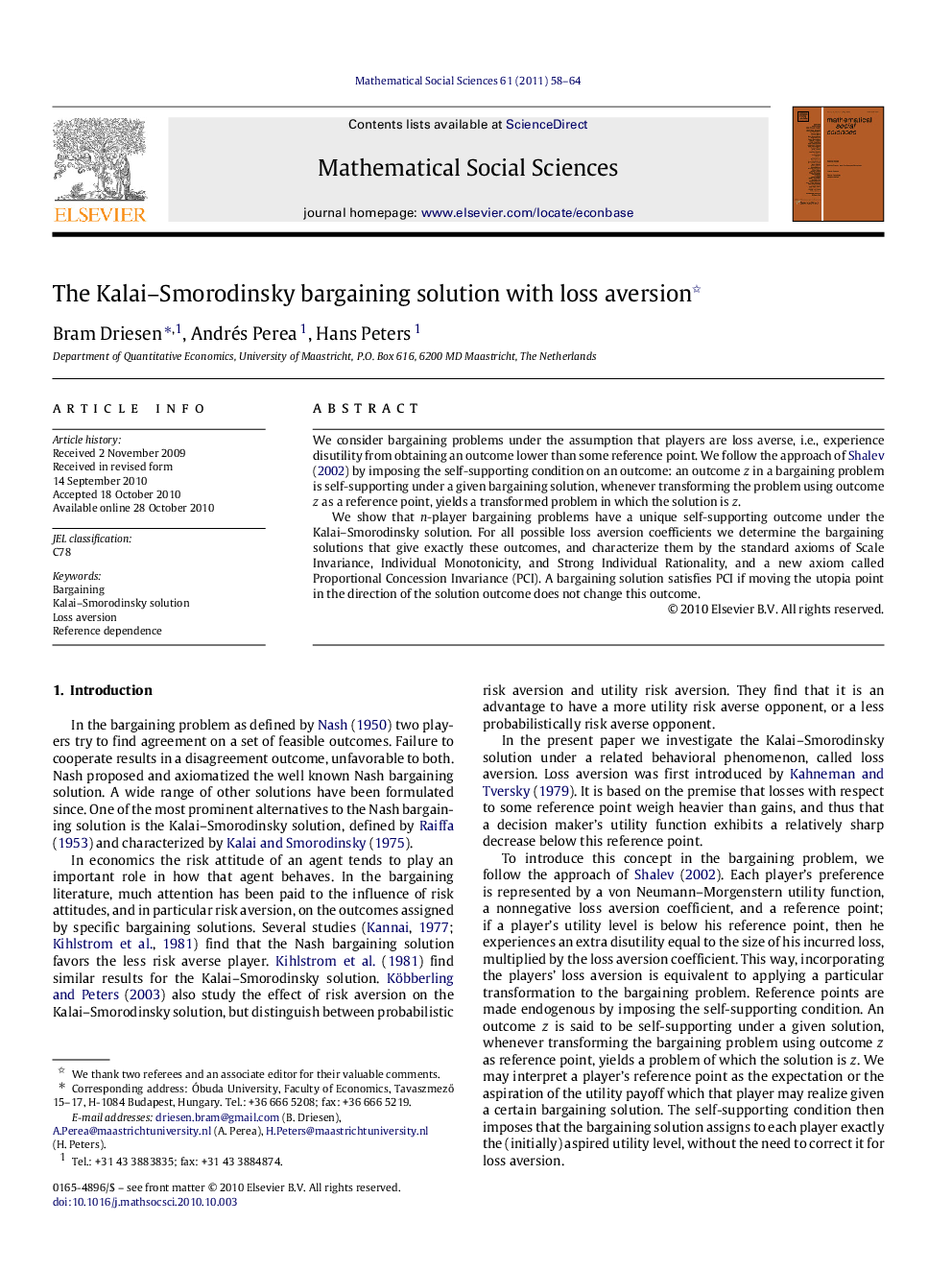| Article ID | Journal | Published Year | Pages | File Type |
|---|---|---|---|---|
| 972284 | Mathematical Social Sciences | 2011 | 7 Pages |
We consider bargaining problems under the assumption that players are loss averse, i.e., experience disutility from obtaining an outcome lower than some reference point. We follow the approach of Shalev (2002) by imposing the self-supporting condition on an outcome: an outcome zz in a bargaining problem is self-supporting under a given bargaining solution, whenever transforming the problem using outcome zz as a reference point, yields a transformed problem in which the solution is zz.We show that nn-player bargaining problems have a unique self-supporting outcome under the Kalai–Smorodinsky solution. For all possible loss aversion coefficients we determine the bargaining solutions that give exactly these outcomes, and characterize them by the standard axioms of Scale Invariance, Individual Monotonicity, and Strong Individual Rationality, and a new axiom called Proportional Concession Invariance (PCI). A bargaining solution satisfies PCI if moving the utopia point in the direction of the solution outcome does not change this outcome.
